Tag Archives: data analytics
Unemployment Data & Actionable Insights Examples
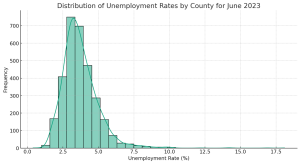
Unemployment figures often flood the news, painting a broad picture of economic stability or crisis. But have you ever wondered how these rates break down at the local level? Do certain counties (or cities) in different states fare better or worse than the national average, and if so, why? Unemployment is a critical indicator of economic health and social well-being. While national or state-level unemployment rates often make headlines, diving deeper into county-level or city level data can offer valuable insights for local governments, policymakers, and social organizations. In this blog, we will explore a dataset that provides unemployment rates for various U.S. counties in June 2023. Along the way, …
Actionable Insights: Examples & Concepts
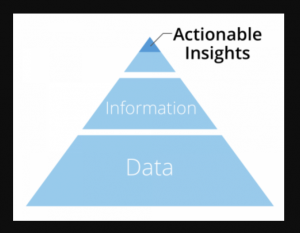
The idea of actionable insights is something that has gone mainstream across different departments in any and every business due to the onset of decision-centric analytics and digital transformation initiatives at large. Today, actionable insights are at the heart of many successful business decisions, and are used to help companies grow further than ever before. Actionable insights are key to any data analytics initiatives including decision-centric analytics which are at the heart of digital transformation. Analytics centered around actionable insights can also be termed as actionable analytics. In this blog post, we will understand the concepts of actionable insights with the help of examples along with few actionable analytics tools …
Analytical thinking & Reasoning: Real-life Examples
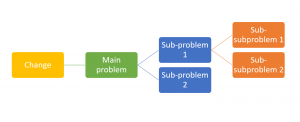
Analytical thinking and analytical reasoning are two concepts that are often misunderstood. Many people think that they are the same thing, but this is not the case. In fact, analytical thinking and analytical reasoning are two very different things, however, related. Analytical thinking is an important aspect of analytical skills. Most of us do not realize how to use analytical thinking and often end up solving the problem incorrectly or half-heartedly. As data analysts or data scientists, it would be of utmost importance to acquire this skill well. In this blog post, we will learn these concepts with the help of some real-life examples. What’s Analytical Thinking? Before we get …
Difference between Data Science & Data Analytics
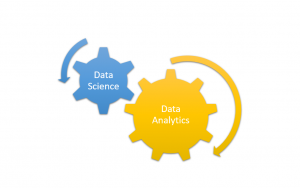
What’s the difference between data science and data analytics? Many people use these terms interchangeably, but there is a big distinction between the two fields. Data science is more focused on understanding and deriving insights from data while leveraging statistical and machine learning methods, while data analytics is an overarching term used to solve problems using analytical techniques while leveraging data. Both the terms are in a way related. In this blog post, we’ll explore the differences between data science and data analytics in greater detail, with examples of each. The following are key topics in relation to the difference between data science and data analytics: Different forms/purposes Different techniques …
How to Identify Analytics Use Cases for Solving Business Problems
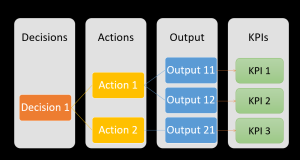
In today’s data-driven world, data analytics has become a key aspect of business decision making. Organizations are increasingly relying on data analytics to gain insights into their operations and customers, in order to drive growth and profitability. However, the challenge for many businesses is not in understanding the importance of analytics, but in identifying the right use cases for their particular business problems, execute those use cases and deliver in a timely manner. This is where a structured approach to identifying analytics use cases becomes critical. In this blog post, we will explore how product managers and data scientists can work with business owners and identify analytics use cases that …
Data Analytics Explained: What, Why & How?
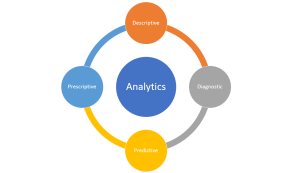
Data analytics has become a buzzword in the business world today, and for all good reasons indeed as it brings competitive advantage to the business if leveraged in the most appropriate manner. The ability to collect, process, and analyze large amounts of data in order to solve business problems has given organizations unprecedented insights into their operations, customers, and markets. By leveraging these insights, businesses can make informed decisions also called as data-driven decisions, identify new opportunities, and drive growth. But what exactly is data analytics? What are the different forms of data analytics? Why is it so important? And how can businesses leverage it to their advantage? How can …
Analytics Maturity Model for Analytics COE
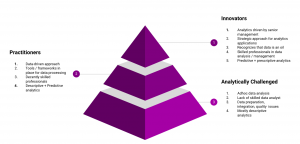
As businesses continue to embrace digital transformation, data analytics has become an essential component of business strategy. As a result, many organizations have established or are in the process of setting up an Analytics Center Of Excellence (Analytics COE) to drive analytics initiatives and improve their overall data-driven decision-making capabilities. TO achieve this objective, analytics COE requires a framework for assessing the maturity of their analytics practice. This is where analytics maturity model kicks in. The Analytics Maturity Model can be defined as a framework that enables organizations to assess their current analytics capabilities, identify areas for improvement, and establish a roadmap for analytics maturity. It provides a structured approach …
Analytics COE Team: Roles & Responsibilities

Data analytics Centers of Excellence (CoEs) are the key to unlocking a company’s full potential with data. As a business leader, you know how important it is to stay ahead of the curve and have access to timely, accurate analytics that can help inform decisions. But having access to this data isn’t enough—you need an experienced team in place who understand the nuances of data analytics, can develop models and uncover insights that drive business decisions. That’s where data analytics CoEs come in. In this blog post, we’ll explore the roles and responsibilities of staff members in data analytics CoEs, as well as their importance in enabling organizations by delivering …
Data value chain: Framework, Concepts
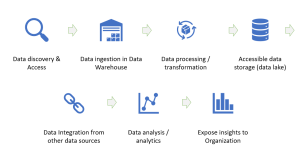
As organizations become increasingly data-driven, understanding the value of data is critical for success. The data value chain framework helps to identify and maximize the value of data by breaking it down into its components. In this post, we will explain what a data value chain is, why it’s important, and how to implement it. Data Value Chain Framework: Key Stages The data value chain (DVC) is a business model that helps organizations understand how to create, manage and utilize their data assets in order to realize maximum business value based on using them. It breaks down the various stages of an organization’s entire journey with its data into distinct …
Data Analysis Types: Concepts & Examples
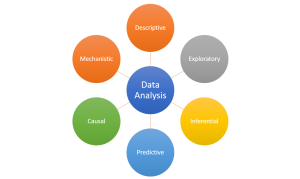
Data analysis plays an important role in understanding the world, discovering trends, and making decisions. Having a good understanding of the different types of data analysis available is essential for anyone looking to make sense of their data. In this blog post, we’ll discuss the six different forms of data analysis and provide examples of each type so you can get a better idea of how they work. The following is a representation of six forms of data analysis. Before getting ahead and understand different form of analysis, lets understand what is Data Analysis? The word “analysis” comes from the Ancient Greek ἀνάλυσις (analysis, “a breaking-up” or “an untying;” from …
Data-Driven Decision Making: What, Why & How?
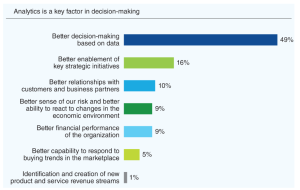
Data-driven decision-making is a data-driven approach to making decisions to achieve desired outcome. More precisely, data-driven decision making is an insights-driven approach to drive decisions and related actions. The data can come from internal and external data sources to avoid data biases. Data-driven decision-makers use data in their decision process to validate existing actions or take new actions (predictive or prescriptive analytics). They make decisions based on the actionable insights generated from the data. The goal is to make informed decisions while ensuring trust & transparency across the stakeholders & organization as a whole. It can be noted that data-driven decision making provides great thrust to digital transformation initiatives. In …
Data Governance Framework Template / Example
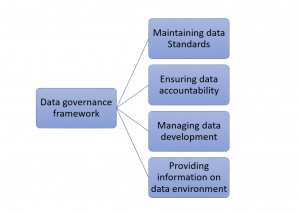
Data governance is a framework that provides data management governance. It’s the process of structuring data so it can be governed, managed and used more effectively. Data governance framework forms the key aspect of data analytics strategy. This blog post will discuss key functions of a standard data governance framework and can be taken as a template or example to help you get started with setting up your data governance program. What is Data Governance Framework? Data governance can be defined as enterprise-wide management of data from availability, usability, security and integrity standpoint. The data governance framework is intended to put some structure around how data can be managed and …
ESG Concepts: Reports, Metrics & KPIs
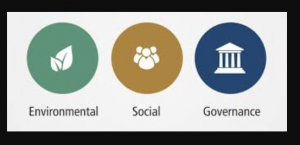
This blog post is geared toward Environmental, Social & Governance (ESG) professionals looking to understand different aspects of ESG and some metrics that can be reported via ESG reports as part of their organization’s ESG reporting (annual reports) in relation to representing the sustainability aspect of their business. An understanding of different aspects of ESG can help you in getting started with ESG initiatives and ESG reporting. ESG initiatives can help companies improve their overall sustainability factor while creating a positive impact on environmental, social, and governance issues. Getting started with ESG-related practices in your organization or department (such as procurement) requires a set of ESG initiatives and related performance …
Top Healthcare Data Aggregation Companies
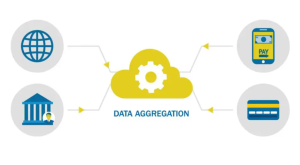
Data aggregation is the process of collecting data from multiple sources and compiling it into a single database. This process is essential for healthcare professionals, companies and startups because it allows them to track and analyze patient data, which can be used to improve patient care. There are many companies that offer healthcare data aggregation services. However, not all of them are created equal. To help you choose the right company for your needs, we’ve compiled the following list of the top healthcare data aggregation companies. This list will be updated from time-to-time. Athenahealth: Athenahealth is a healthcare data aggregation company that provides electronic health records, practice management software, and …
Data Analyst Technical & Soft Skills
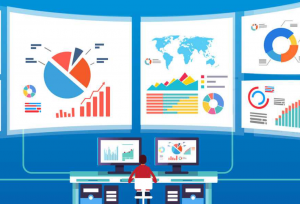
Do you want to become a data analyst? It’s a great career choice! Data analysts are in high demand these days. Companies rely on data analysts to help them make better decisions by turning data into insights. In order to be successful, data analysts need a mix of technical skills and soft skills. Technical skills include expertise in analyzing data. Soft skills include communication and problem-solving skills. Data analysts must be able to take data and turn it into insights that help their company make better decisions. They also need to be able to effectively communicate those insights to people who may not have a technical background. In this blog …
Digital Twins & its Types: Concepts & Examples

You’ve probably heard of the term “digital twin” but aren’t sure what it means or how it can help your business. A digital twin is a virtual replica of a physical object or system. There are various different types of digital twins such as component, asset, system and process twins. Digital twins have become an important part of Industry 4.0 and the Internet of Things (IoT). They allow companies to improve product quality, optimize operations and reduce costs. For example, Airbus uses digital twins to monitor the health of its aircraft engines in real time. This helps them to identify potential problems early and take preventative action. In this blog …
I found it very helpful. However the differences are not too understandable for me